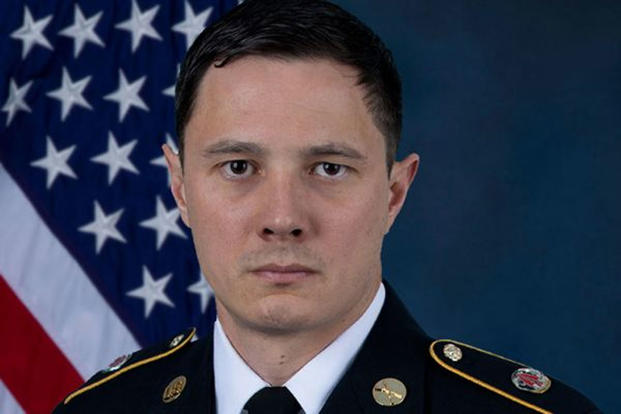A U.S. special operations soldier and British operator who died during a deployment to Syria last year were killed in a friendly incident, not as a result of enemy action as originally announced, officials with U.S. Special Operations Command confirmed Monday.
In a statement, SOCOM confirmed the accuracy of a British Ministry of Defense investigation which concluded that Army Master Sgt. Matthew Dunbar and British Sgt. Matthew Tonroe were killed by the apparent accidental detonation of explosives carried out by a coalition member of their team.
Five other members of the team were wounded in the blast. A U.S. investigation had attributed the explosion that killed the two highly trained and experienced noncommissioned officers to an enemy improvised explosive device, usually called a roadside bomb.
The initial SOCOM statement did not give any detail on why the U.S. announced the wrong cause of death or indicate any specifics in the British report that led to the reversal.
The SOCOM statement by spokesman Ken McGraw confirmed the accuracy of the subsequent British investigation and said Dunbar and Tonroe died "as a result of the accidental detonation of explosives carried by coalition forces, not be enemy action."
The statement concluded that "our thoughts continue to be with Master Sgt. Dunbar's and Sgt. Tonroe's family and friends."
In a Sunday statement, a British Ministry of Defence official said that it had been "initially believed that Sgt. Tonroe was killed by enemy action. However, subsequent investigation concluded that Sgt. Tonroe was killed by the accidental detonation of explosives carried by coalition forces."
The statement did not mention Dunbar, but both he and Tonroe were on a team on a "kill or capture" mission against a high-value enemy target In March 2018 in the area of the flashpoint town of Manbij in northern Syria, Pentagon officials said at the time.
Dunbar, 36, of Austin, Texas, was deployed in support of Operation Inherent Resolve in Iraq and Syria, and had served previous tours in Iraq and Afghanistan. At the time of his death, he was assigned to Headquarters, U.S. Army Special Operations Command at Fort Bragg, North Carolina.
According to SOCOM, Dunbar joined the Army as an infantryman in May 2005, and his first assignment was to the 1st Battalion, 325th Airborne Infantry Regiment, at Fort Bragg, North Carolina. In 2013, Dunbar was assigned to SOCOM.
Dunbar's awards and decorations included three awards of the Bronze Star, the Army Achievement Medal (sixth award), the Ranger Tab, the Combat Infantryman Badge, the Expert Infantryman Badge, the Pathfinder Badge, the Military Freefall Jumpmaster Badge, and the Parachutist Badge.
Sgt. Tonroe, 33, originally from Manchester, was the first British soldier to be killed in the fight against the Islamic State, and was a member of the elite Special Air Services (SAS) commando unit, according to the British Ministry of Defense.
-- Richard Sisk can be reached at Richard.Sisk@Military.com.













